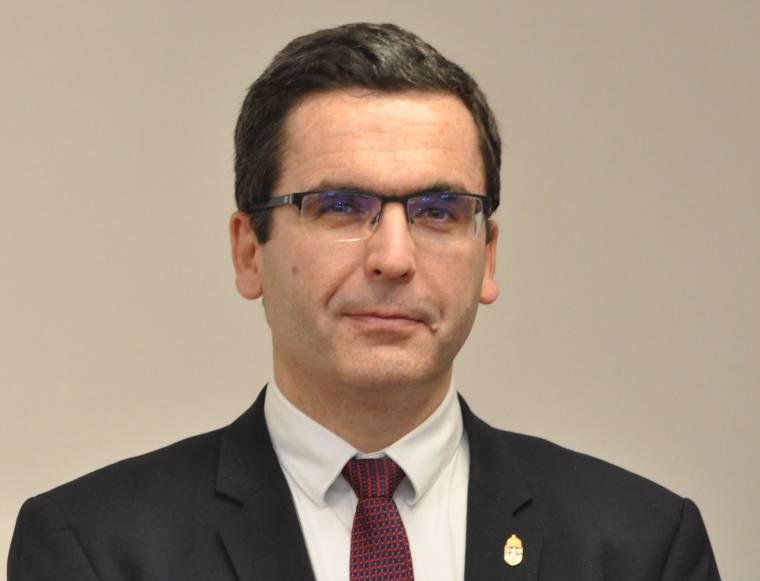Science at the Amphitheater
There may be grades that students have not seen the walls of educational institutions from the inside for months, teaching is intensive in the online space, and these days prospective storks are familiar with the waiting for them in higher education. with requirements and possibilities.
Computerworld: Open days are still taking place at the University of Óbuda. What is the interest in getting to know each other online
Levente Kovács: I don’t think anyone can but there was no other option due to the pandemic. It is quite different to do education online than to have an enrollment campaign, to hold open days. All courses advertised on the university and faculty websites are available, and online open days give students the opportunity to keep interested and ask questions online. It’s still a new system not known to everyone, but interested young people are visibly searching for a fair number of the information that appears on our platforms. However, as the University of Óbuda has made its voice heard with recent developments and innovations (eg MassVentil, the mass ventilation system), we are confident that there will be a large number of applicants, but we also do our best to be present at every possible forum, online conference and exhibition. .
CW: Is there a possibility of interaction
KL: Of course, our colleagues offer a personal virtual presence at pre-arranged times when students can ask questions, inquire about the training provided by the faculties
CW: What admission requirements can they expect this year?
KL: Due to the high level of graduation, the admission requirements have already changed last year. From this, all higher education institutions expect better homogenization, as an advanced level of graduation means a higher level of readiness. At the University of Óbuda, we have been holding advanced graduation courses online since this year. A novelty in the admission requirements is that from this year it is possible to enter the basic education courses not only with an advanced level graduation exam, a higher education diploma, but also with a diploma obtained in the higher education vocational training degree. Based on the Vocational Training 4.0 program, technical training is also being integrated into the higher education system.

CW: Which courses will be this year?
KL: As a technical higher education institution, all our majors are for sale, as we can talk about a large shortage of engineers in the market. According to the Graduate Career Tracking System (DPR), the recent graduates of the University of Óbuda are on the podium in every salary in the salary rankings. The biggest hit, though, is the engineering and IT department, where, in addition, we are nationwide in the DPR starting salary ranking. It’s not as if there isn’t a great need for mechanical or electrical engineers, but the digitalization of industry, Industry 4.0, has inevitably increased the demand for IT expertise. Therefore, our engineering and IT department is the most sought after. This is compounded by the impact of the Covid epidemic on accelerating the digital transformation and transforming the world of work. Prospective employees want financially valued, preferably online, innovative work and jobs
CW: What are the plans for this year?
KL: We hope it will be better than last year, but until the vaccine develops herd immunity, the pandemic will determine the circumstances. Nevertheless, we plan to launch new courses and interdisciplinary courses, such as cyber security, business informatics or graphic communication. We will also launch masters courses and foreign language courses, further strengthening Industry 4.0
CW: Will there be a change in the teaching staff in this regard? . karukba. We think primarily of Hungarian-speaking educators who have achieved success abroad and are ready to re-use their intellectual capital in the motherland. In addition, the government’s efforts to encourage innovation can be said to reposition a significant part of the teaching staff if they want to use their knowledge not only in interdisciplinary research but also in education. If the funding based on the number of students is modified in the future to take into account research and development, the esteem of the lecturers may also increase in terms of their salaries.
A few days ago a new The University of Óbuda delegated more members than ever before: five of the seventeen members of the Informatics Scientific Committee were appointed by the University of Óbuda, we were also included in the Automation and Computer Science Scientific Committee, and the Department of Agricultural Sciences .
The post Science at the Amphitheater appeared first on World Weekly News.
